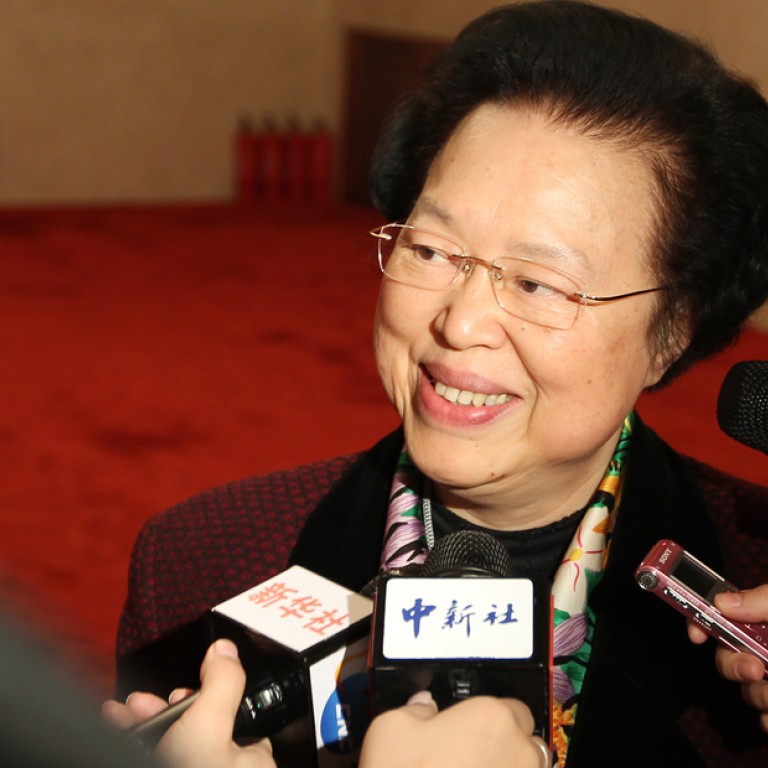
Universal suffrage not same as direct election, Maria Tam tells city
Some Hongkongers may be confused about the meaning of full democracy, a leading Beijing loyalist said yesterday. And a mainland academic said a vote for hand-picked candidates would still deliver universal suffrage.
Some Hongkongers may be confused about the meaning of full democracy, a leading Beijing loyalist said yesterday. And a mainland academic said a vote for hand-picked candidates would still deliver universal suffrage.
Peking University law school professor Wang Lei told a forum in Hong Kong that the chief executive could be deemed elected by universal suffrage in 2017 as long as there were no "unreasonable restrictions" on the right to vote.
He ruled out any notion of the public nominating chief executive candidates, as demanded by many pan-democrats.
"The universal suffrage stated in the Basic Law's Article 45 concerns the right to vote … It was made clear that the nominating committee is the only official body [empowered] to put forward candidates," Wang said.
Also speaking at the forum, Basic Law Committee member Maria Tam Wai-chu agreed. She said it was "possible" some Hongkongers were confused about universal suffrage.
"According to international … conventions, universal suffrage means voters' [rights] should not be restricted unreasonably … while a direct election means there shouldn't be any medium [working between voters and candidates] making the election indirect; they are two different ideas," Tam said.
But senior counsel and Civic Party lawmaker Ronny Tong Ka-wah disagreed with the pair.
"Wang might not have a clear understanding of Hong Kong's situation, because all he's doing is insisting on the legal perspective - that only the nominating committee can nominate," Tong said.
On the extent of the committee's power, he said that while the right to nominate need not be universal and equal, it must be "reasonable" because "citizens' right to vote and be elected could be weakened by any unreasonable restriction in the nominating process".
Tong suggested that Hongkongers have a say in putting forward candidates rather than leaving the choice to the nominating committee.
Speaking on the sidelines of the forum, Wang also said all Hongkongers, not just the chief executive, should love their country. "For example, [they should] respect the country, the local and central governments, the State Council, the National People's Congress [and] the People's Liberation Army's local garrison," he said.
Separately, pro-Beijing group the Voice of Loving Hong Kong tabled its proposal for political reform. It suggested the nominating committee comprise 2,400 members, double the number on the current election committee, who would be elected by an expanded group comprising more company directors, professionals and labour union members.
But in contrast with Tong's call for at least seven candidates to be put forward by the committee, the group capped the number at four.

